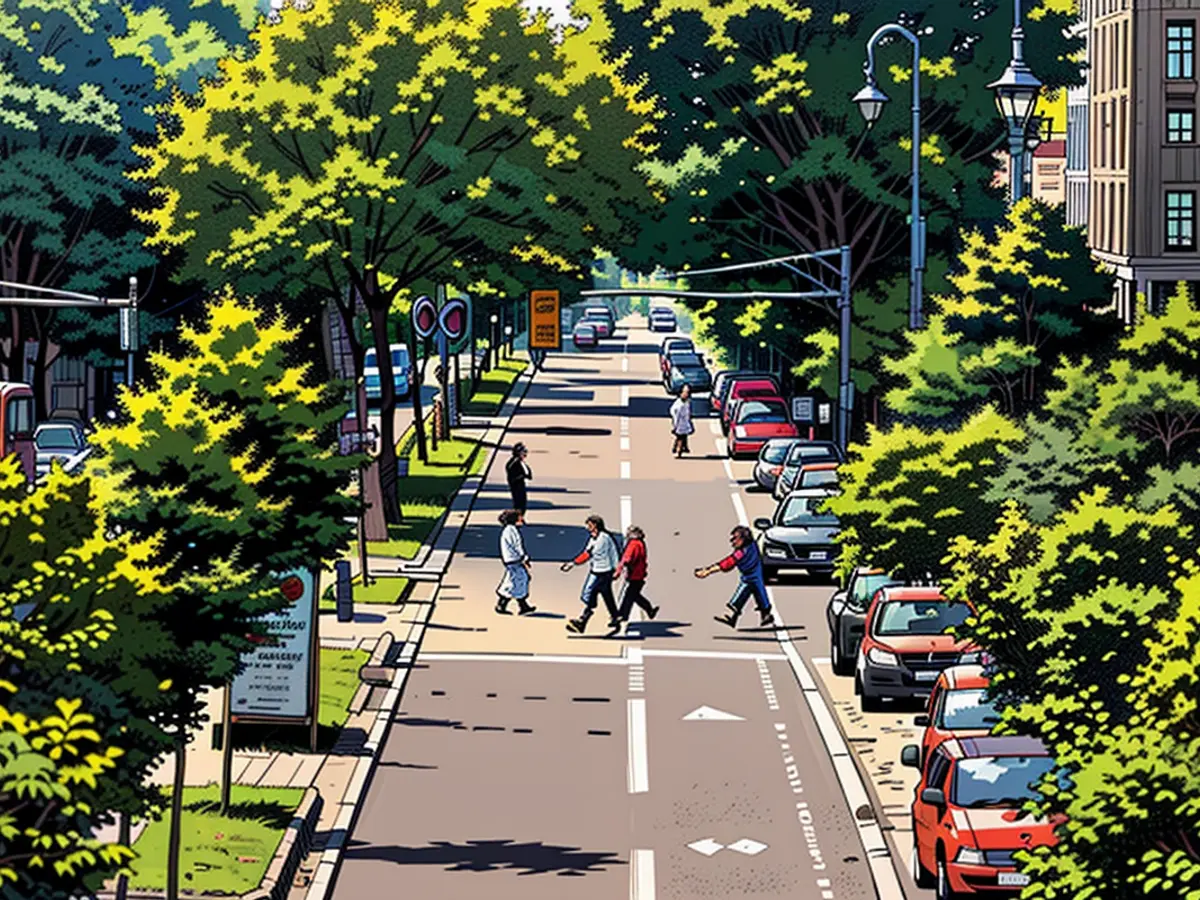- Berlin is building significantly fewer cycle lanes than planned
Berlin Lags Behind Self-Imposed Cycling Infrastructure Goals This Year
The Berlin Senate has fallen short of its self-set targets for cycling infrastructure expansion this year. So far, only seven cycling projects with a total length of around 4.2 kilometers have been opened to traffic, according to the Senate Department for Transport. This is fewer than what the non-profit organization Changing Cities, which advocates for sustainable cycling infrastructure in Berlin, has reported for the first half of the year.
24 Projects Planned for 2024
A total of 24 cycling projects with a length of 16.7 kilometers are planned for 2024, according to the Senate. "According to the Mobility Law, it should have been 50 km," Changing Cities stated. Berlin's governing mayor had also announced in 2023 that he wanted to make more progress on this issue than the previous red-green-red government.
Wegner's 2023 Promise
In 2022, around 26.5 kilometers of cycling paths were added under the green transport senator Bettina Jarasch. "I think that's not a good balance sheet," Wegner said about a year ago. "The balance sheet that Mrs. Jarasch has laid down in one year, we will easily exceed." However, the black-red state government is far from achieving this in 2024.
The Senate Administration did not clarify whether Wegner's stated goal still applies. "Our goal is to create a comprehensive cycling infrastructure in Berlin," it stated. "The implementation depends on many factors that are not always within our control, making it difficult to set a specific km target." Additionally, it is important to renovate existing routes to make them safe and usable again.
Promoting Cycling to Reduce CO2 Emissions
A significant driver of CO2 emissions in traffic is car traffic. Therefore, municipalities play a crucial role in encouraging more people to switch from cars to public transport and cycling. In 2018, the then Berlin state government passed the Mobility Law, which gives priority to public transport over car traffic in the capital. By 2030, the law requires a dense cycling network of so-called fast cycling routes and regular routes with a total length of 2,700 kilometers. These fast cycling routes should enable a quick ride from the outskirts to the city center with as few stops as possible, making the bike a real alternative to the car.
However, the previous government also fell behind schedule in implementing this. Originally, ten such connections were planned, one of which was already canceled in 2022. In early August, Changing Cities reported that plans for eight more routes had been halted.
The Senate contradicted this statement, saying, "There are different planning statuses for the fast cycling connections, but no cancellations." However, due to the tense budget situation, a realistic assessment and scheduling of the financial feasibility of all projects is currently not possible.
"High-priority" are currently only three cycle expressways being further developed. These include the cycle expressway number three on the Kronprinzessinnenweg between Wannsee and Charlottenburg along the A115 motorway, which is already well-developed and is particularly popular among road cyclists. Parts of routes 5 and 9, which belong to the so-called East-West route, are also to be implemented.
However, it is planned to fulfill all existing planning orders. Nevertheless, many citizens have doubts about this. Hundreds demonstrated at the end of last week with a procession against the Senate's cycling policy and against the cancellation of cycle expressways.
The Berlin Senate needs to address the annual report on its progress towards meeting the self-imposed cycling infrastructure goals, considering the significant public demonstrations against its cycling policy. Despite planning 24 cycling projects for 2024, totaling 16.7 kilometers, it falls short of the Mobility Law's requirement of 50 kilometers by that year.








